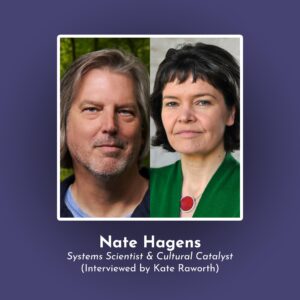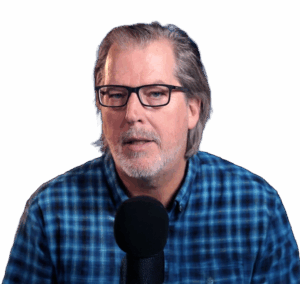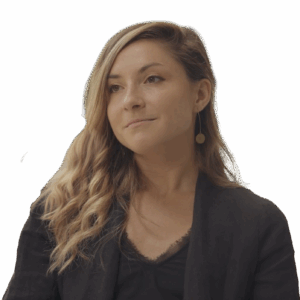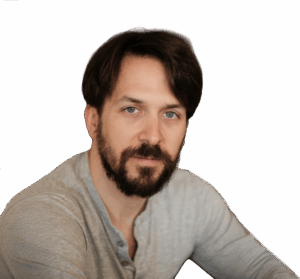
Show Summary
On this special 100th episode, Nate is interviewed by his friend and colleague in the metacrisis space, Kate Raworth. The conversation is a reflection on the past two years of podcasting – and how Nate’s worldview has evolved because of it. What fundamental concepts could help us better understand the trends happening around us and the potential futures they point to? With so many moving pieces, how can we begin to create a coherent story of the world around us and – even more difficult – start preparing responses to coming challenges? What should individuals aware of these converging crises be thinking about in order to prepare themselves, their families, and their communities for a materially smaller future?
About Nate Hagens
Nate Hagens is the Director of The Institute for the Study of Energy & Our Future (ISEOF) an organization focused on educating and preparing society for the coming cultural transition. Allied with leading ecologists, energy experts, politicians and systems thinkers, ISEOF assembles road-maps and off-ramps for how human societies can adapt to lower throughput lifestyles. Nate holds a Masters Degree in Finance with Honors from the University of Chicago and a Ph.D. in Natural Resources from the University of Vermont. He teaches an Honors course, Reality 101, at the University of Minnesota.
About Kate Raworth
Kate Raworth describes herself as a renegade economist focused on making economics fit for 21st century realities. She is the creator of the Doughnut of social and planetary boundaries, and co-founder of Doughnut Economics Action Lab, based on her best-selling book Doughnut Economics: 7 Ways to Think Like a 21st Century Economist. Kate is a Senior Associate at Oxford University’s Environmental Change Institute, where she teaches on the Masters in Environmental Change and Management. She is also Professor of Practice at Amsterdam University of Applied Sciences. She is a member of the Club of Rome and currently serves on the World Health Organisation Council on the Economics of Health for All.
In French, we have a motto that says that a simple drawing is often better than a long explanation. Jean-Marc Jancovici Carbone 4 President
That’s very understandable because with left atmosphere thinking, one of the problems is that you see everything as a series of problems that must have solutions. Iain McGilchrist Neuroscientist and Philosopher
We can’t have hundreds and hundreds of real relationships that are healthy because that requires time and effort and full attention and awareness of being in real relationship and conversation with the other human. Nate Hagens Director of ISEOF
This is the crux of the whole problem. Individual parts of nature are more valuable than the biocomplexity of nature. Thomas Crowther Founder Restor
Show Notes & Links to Learn More
Download transcript00:00 – Nate Hagens Work + Info, Frankly Series
05:15 – Energy Blindness
05:54 – 400-500 billion fossil laborers in the global economy
05:55 – We are depleting these fossil stores rapidly
06:32 – Economic growth is linked to energy growth (Section 1.2)
07:05 – Carbon Pulse
08:45 – Superorganism
09:42 – Economic growth 100% linked to material consumption
11:06 – Mordor Economy – J.R.R. Tolkien
12:27 – 1999 all time low of energy extraction as part of the economy (5%) but has grown by 10% since
13:10 – Ecological destruction of the economy
14:28 – Nate on AI
15:11 – Jevons Paradox
16:52 – Metacrisis/Polycrisis
20:23 – 13k Nuclear Warheads
20:47 – Just in time supply chain
21:02 – Food travels on average 1500 miles to the dinner plate in the US
27:27 – Donut Economics
30:18 – Citizen Kane
33:38 – Minsky Moment
38:39 – Humans weren’t evolved to handle modern day stress, but human connection helps
41:32 – Harms/dangers of social media – benefits/utilitarian uses
43:50 – Mark Twain, “Buy land, they’re not making it anymore”
45:26 – Rural vs Urban sustainability debate
47:11 – Robert Saposky + TGS Episode
48:18 – Maximum Power Principle
48:48 – Rube Goldberg Machine
49:28 – Infinite growth is impossible
49:45 – New oil drilling leases granted in Alaska and the North Sea
50:31 – Since the Paris accords, we’ve grown coal capacity by 200 GW
53:02 – Fossil Fuel Non-proliferation treaty
53:52 – Degrowth vs Post-growth
54:21 – China has the most renewable energy, and the most coal (and increasing)
57:09 – Nate’s Homeland Security Presentation
58:02 – Renewables are actually rebuildables
1:00:36 – Joslin Faith Kehdy + TGS Episode
1:06:05 – Financial Overshoot
1:11:48 – Bill McKibben
1:12:40 – Civil disobedience
1:16:50 – Parallel Currency
1:18:10 – Bernard Lietaer
1:18:14 – Stephanie Kelton, Modern Monetary Theory
1:22:55 – Privilege of the dollar as the reserve currency
1:23:25 – US credit rating downgrades
1:26:36 – Jean Marc Jancovici + TGS Episode, Simon Michaux + TGS Episodes, Sandra Faber
1:31:30 – Inter and Intra country inequality
1:35:59 – Advance Policy
1:52:25 – Helen Thompson + TGS Episode







